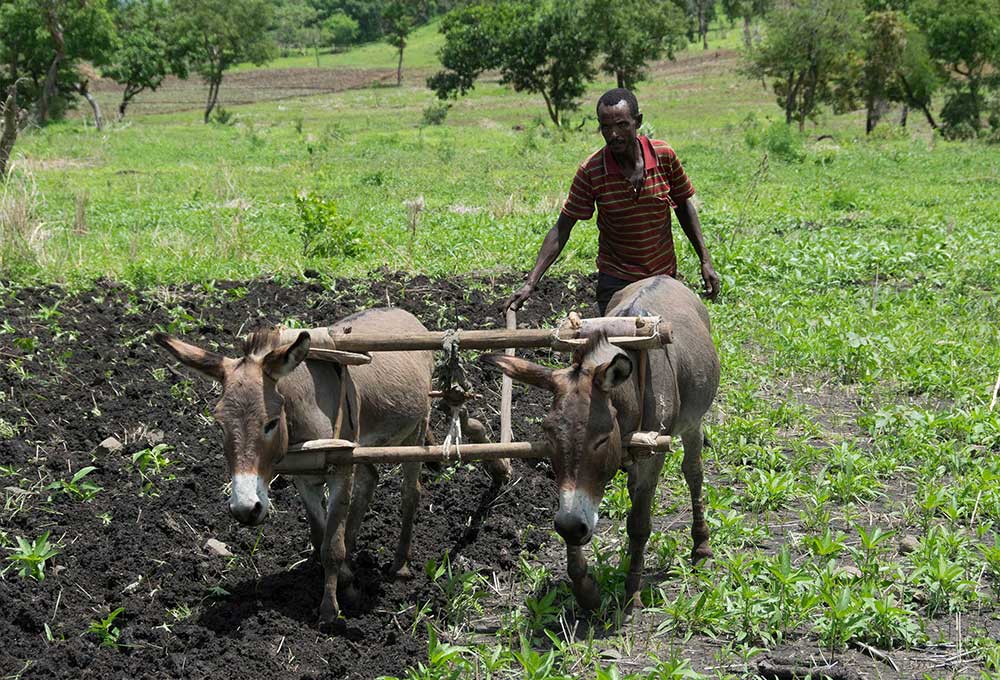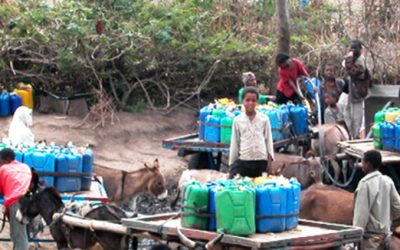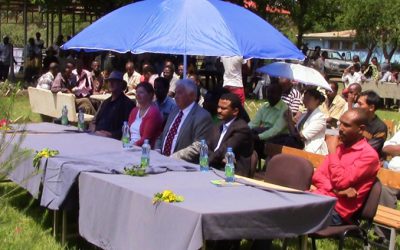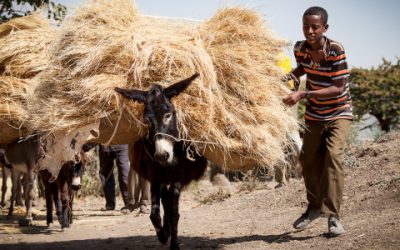Working with Communities
Working with Communities is at the Heart of our International Work
In early December, we gathered in Bahir Dar, a bustling city on the shores of Lake Tana in Ethiopia, to host a workshop for our country programme community staff.
The Donkey Sanctuary’s international work used to focus on the provision of free veterinary treatment to working animals overseas. While this approach undoubtedly improved the immediate condition of the individual animal, it was difficult to sustain long-term improvements in donkey welfare since this approach does not address the root causes that lead to poor welfare conditions, and the same problems would keep recurring.
In recent years, we have changed our approach and we now put communities at the heart of our work. We use a learning-based, participatory approach where communities are supported to improve the health and welfare of their donkeys for themselves.
his approach ensures that communities build the knowledge, skills and motivation to improve the welfare of their donkeys, and it creates longer-term, sustainable change.
We are always striving to improve and develop the way we integrate and work with local communities to improve the welfare of working donkeys and mules.
The majority of our in-country teams have a dedicated Project Development Manager for Community (PDM-C), whose role it is to develop, plan and deliver community-based, participatory approaches and methods for improving donkey welfare.
The workshop in Ethiopia was an excellent opportunity to bring together key community staff from each of our international programs, and staff members travelled from Egypt, Mexico, Kenya and from within Ethiopia to join us, along with four members of the International Department from Sidmouth.
During the week we engaged in a multitude of different activities, including presentations, role-plays, quizzes and even speed dating!
This was not quite what you might expect; the ‘speed dating’ activity borrowed the concept of three-minute chats with a partner but was really an entertaining way for us all to get to know each other and find out more about our colleagues.
Having Donkey Sanctuary staff come together from all over the world was a wonderful experience; we shared a great deal of information, learned from one another and developed some excellent pieces of work collaboratively.
The workshop included a site visit to the Donkey Sanctuary Ethiopia program’s Amhara office, and a field visit to Fereswoga Kebele, one of the communities in which we work; it was a privilege to see such wonderful work in action in the field.
The community was clearly very proud of its working donkeys, and I observed healthy, happy and relaxed animals that were fit and willing to start work when their owner required. It was such a joy to see, it deserves a blog post of its own.



